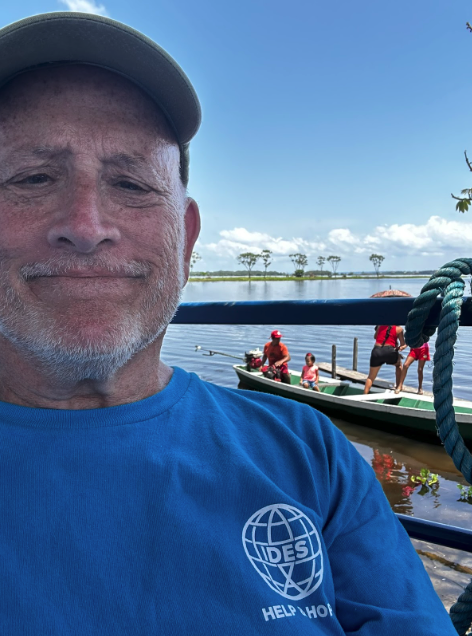Jeff Greene waiting for patients to come on board a Medical Boat on the Amazon in Brazil
Recently, while attending this year’s SPIRE conference, I enjoyed listening to a unique session titled "7 Sermons in 7 Minutes." Each speaker had precisely seven minutes to deliver a powerful message, and it was a fascinating and impactful experience. One sermon that particularly resonated with me was delivered by Tyler McKenzie, the Lead Minister at Northeast Christian Church in Louisville, KY.
Tyler's sermon text was drawn from Acts 1:8, which states: “But you will receive power when the Holy Spirit comes on you, and you will be my witnesses in Jerusalem, and in all Judea and Samaria, and to the ends of the earth.” After reading the verse, Tyler made a statement that I found incredibly insightful and thought-provoking: “If Matthew 28:19-20 is called the Great Commission, then I propose that we call Acts 1:8 “The Great Ignition.”
This concept of "the Great Ignition" immediately captivated me. When we delve into the pages of the Book of Acts and explore the letters written to the early church, we witness a dynamic and transformative period. We see how the early Christians, having encountered the living God, truly followed His lead. Their lives were dramatically altered as they turned away from sin, repented of their past, and were baptized, beginning a new life in Christ. This profound conversion wasn't a passive experience; it was the spark that launched them into an active and fervent mission.
God, through the indwelling of the Holy Spirit, ignited the early church, empowering them to share their newfound faith wherever they went. This divine ignition propelled them to spread out rapidly, preaching and teaching the Gospel across geographical and cultural boundaries. The early church's swift and expansive growth went beyond any human effort. It was a direct result of God's active involvement, igniting and empowering His people to be His witnesses to the ends of the earth.
Time and again, we see how both natural calamities and human-made crises, though devastating, paradoxically serve as catalysts for spreading the message of hope to a world that often feels lost and in despair. Consider the profound impact on refugees, for instance. As they seek refuge in places like Thailand and Poland, they often land in vibrant communities where new churches are not just emerging but are actively springing up, offering both practical help and spiritual hope.
Our fervent prayer is that these individuals, in their journey of displacement and uncertainty, will come to intimately know Christ. Furthermore, we pray that when they are eventually able to return to their homelands, the Holy Spirit will have so profoundly ignited their hearts that they will be compelled to share this transformative message with their own people, sparking a chain reaction of faith and hope within their communities.

